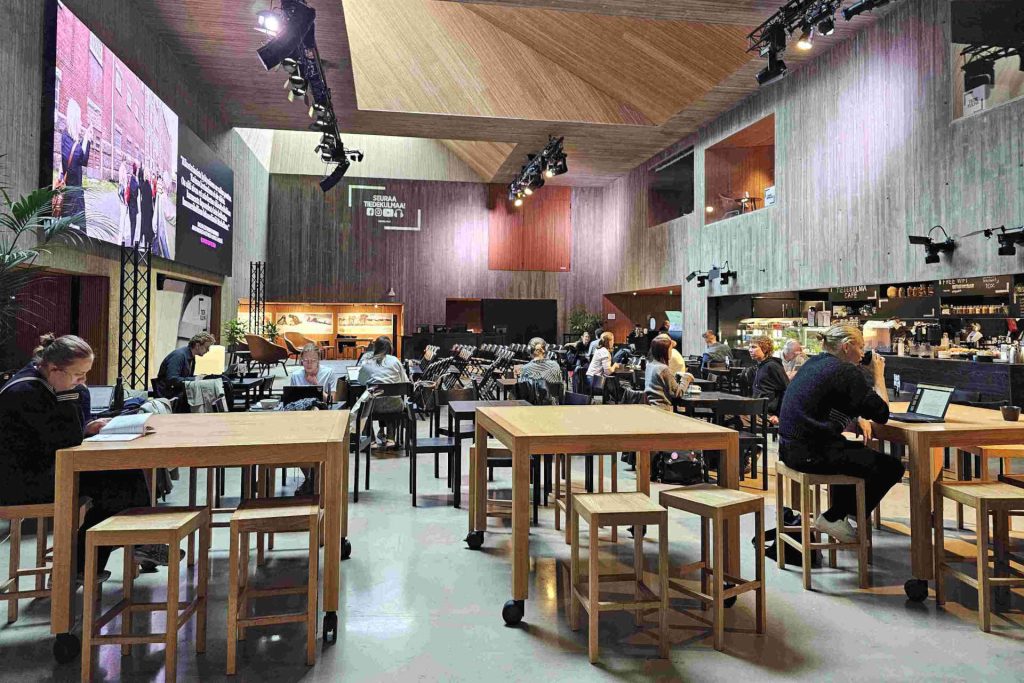
Communal catering is facing major challenges: Due to the increase in home office days, less food is being consumed in company canteens. On office days, however, employees’ expectations of the quality and ambience of the food are rising. This presents employers and caterers with financial and logistical hurdles, but also opens up opportunities for repositioning.
Communal catering is increasingly being used as part of the employer brand to retain and attract talent. Some companies, such as Google and SAP, cover the costs completely or rely on partnerships with neighboring restaurants or food courts that are used by several companies.
Sustainability and regionality are increasingly in demand, but many employees still opt for classic, often less healthy dishes such as pizza, currywurst, schnitzel and pasta. Digital solutions such as pre-ordering via QR code or automatic billing of goods via camera and direct billing to the employee account are already standard in canteens and make them pioneers in digitalization.
Service stations, petrol stations, train stations and airports are undergoing a transformation in the field of transport catering. In rural areas, petrol stations are increasingly replacing supermarkets and serving as local suppliers. Large providers such as McDonald's are planning to expand their presence. The multinational convenience store chain 7-Eleven (focus: vending, stores & smart stores at train stations and airports) is planning to enter the German market and is currently operating in Copenhagen as a test market.
Sustainability and practical packaging solutions also play an important role here, although the packaging law poses challenges. In the future, even reusable tableware and porcelain for in-house consumption could play a greater role. Overall, it is clear that catering and packaging concepts need to be rethought in order to meet changing working and living habits.

Vegan and reduced-sugar desserts that last, shine, and impress guests: Sugar is not the enemy, but it is not the solution either. Modern patisserie thinks ahead—more precisely, more plant-based, more consciously.
Away from the “sugar = taste” reflex, toward texture intelligence, aroma control, and clean technique. Modern patisserie works vegan, reduced-sugar—and often completely without classic table sugar. The matrix, process, and calculation are crucial. About desserts that perform professionally: stable, precise, highly aromatic.
In September, the 5,000-square-meter permaculture garden at the Falkensteiner Balance Resort Stegersbach reaches its full potential. This is when not only hotel gardener Paul Aschberger is called upon, but also chef Philipp Wildling. He quickly turns the tables and declares September to be vegan month: plant-based options become the norm and “conventional” diets with meat and milk become the alternative. With a selection of over 60 types of fruit and vegetables, as well as herbs and edible flowers, Wildling has an easy job.


Communal catering is facing major challenges: Due to the increase in home office days, less food is being consumed in company canteens. On office days, however, employees’ expectations of the quality and ambience of the food are rising. This presents employers and caterers with financial and logistical hurdles, but also opens up opportunities for repositioning.